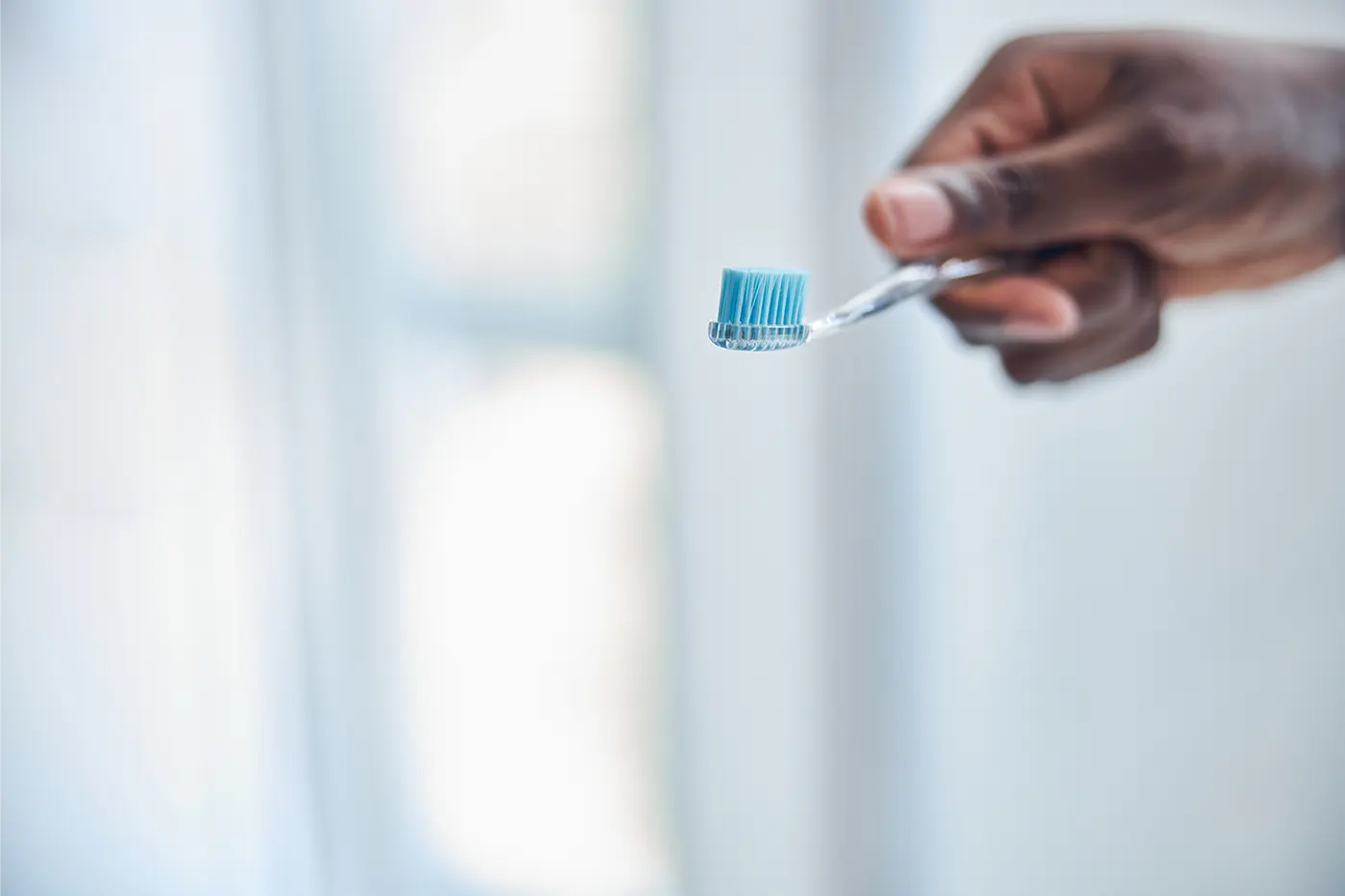
Orthodontic Treatment for Adults: Braces and Invisalign Options
June 19, 2025
What Type of Toothbrush and Toothpaste Should You Use?
August 14, 2025If your gums bleed when you brush your teeth, you’re not alone, and you’re not necessarily in serious trouble. But it is a sign that your gums are trying to tell you something. Bleeding gums can be common, especially during brushing or flossing, but that doesn’t mean it should be ignored. From poor brushing habits to early stages of gum disease, there are a number of reasons why your gums might be bleeding.
In this blog, we’ll break down some of the most common causes of bleeding gums, what you can do to treat them, and how to prevent them from becoming more serious down the road.
Why Are My Gums Bleeding?
Your gums may bleed for various reasons, and not all of them point to a major health issue. Sometimes, it’s a matter of brushing too hard or using the wrong toothbrush. Other times, it could be a sign of inflammation of the gums resulting from plaque buildup. The key is to pay attention to the signs and act early.
Here are some of the most common reasons:
1. Poor Oral Hygiene Habits
Without regular brushing and flossing, plaque can build up along the gum line. Over time, this can cause your gums to become inflamed and start to bleed. The bacteria in plaque irritate the gum tissue and can lead to gum problems if not removed.
What helps: Brush your teeth twice a day with a soft-bristled toothbrush and floss at the minimum once a day. This helps get rid of plaque and keep your teeth and gums healthy.
2. Gingivitis (Early Stage Gum Disease)
Gingivitis is a mild form of gum disease and one of the most common reasons people experience bleeding gums. It happens when plaque builds up and causes the gums to become red, swollen, and bleeding.
What helps: The good news is that gingivitis is reversible. Improve your brushing and flossing routine and schedule regular cleanings with your dental hygienist. A professional cleaning can help remove plaque in areas your toothbrush might miss.
3. Periodontal Disease (Advanced Gum Disease)
If gingivitis goes untreated, it can progress into periodontal disease, a more serious form of gum disease. This affects the deeper structures that support your teeth and can lead to receding gums, bone loss, and even tooth loss.
What helps: Periodontal disease requires care from a dental professional. Treatments may include scaling and root planing, medication, or surgery. Maintaining good oral health is key to preventing it from progressing.
4. Brushing or Flossing Too Aggressively
Sometimes, bleeding gums are simply the result of brushing too hard or using a toothbrush with stiff bristles. Flossing with too much force can also cause your gums to bleed, especially if you’re just starting a new routine.
What helps: Be gentle. Use a soft-bristled toothbrush and be careful not to snap the floss into your gums. Your goal is to clean, not to scrub your gums raw.

5. Vitamin Deficiencies
Lack of certain nutrients, like vitamin C and vitamin K, can affect how your body handles blood flow to the gums and how easily your gums might bleed.
What helps: Make sure your diet includes plenty of fruits and vegetables. If you suspect a deficiency, check with your doctor before taking any supplements.
6. Hormonal Changes
Pregnancy, menstruation, and menopause can all result in changes in hormone levels that affect your gums. Increased blood flow to the gums during these times can make them more sensitive and likely to bleed.
What helps: Continue to brush and floss gently and visit your dentist for guidance during these periods. Regular cleanings can help keep swollen and bleeding gums in check.
7. Medical Conditions and Medications
Certain conditions, like diabetes, or medications such as blood thinners, can have side effects that make gums more likely to bleed. Your immune system also plays a role in how your body reacts to gum inflammation.
What helps: Let your dentist know about any medical conditions or medications you’re taking. They can tailor your care to fit your needs and help you prevent further gum issues.
8. Smoking and Tobacco Use
Tobacco use can cause major damage to your oral health. It can lead to gum disease, slow healing, and mask the signs of gum problems by reducing blood flow to the gums.
What helps: Quitting smoking is one of the best things you can do for your teeth and gums, and your overall health. Talk to your doctor or dentist about resources that can help you quit.
How to Stop Bleeding Gums
If your gums bleed occasionally, it’s usually not a cause for alarm. But consistent bleeding is worth looking into. Here are some general tips to help you stop bleeding and improve your gum health:
- Brush your teeth gently twice a day
- Floss once a day with care
- Use a soft-bristled toothbrush
- Rinse with warm salt water to reduce inflammation of the gums
- Avoid tobacco products
- Eat a balanced diet with enough vitamins C and K
- Visit your dentist regularly for cleanings and checkups
When to See a Dentist
Bleeding gums that don’t improve after a few days of better brushing and flossing could be a sign of something more serious. If your gums are sore, swollen, or bleed frequently, it’s best to get them checked out. Your dentist or dental hygienist can help figure out what’s going on and create a treatment plan.
Final Thoughts
Bleeding gums might seem like a small problem, but they can be a sign of bigger issues with your oral health. The good news is, with better habits and a little help from your dental team, you can stop bleeding, reduce inflammation, and get your gums back on track.
At Axiom Dental, we’re here to help you take care of your teeth and gums at every stage of life. If you’ve noticed your gums bleeding more often, book an appointment with us today. A healthier smile starts with healthy gums.
